By Justin Gerard
I think a good fantasy story, (and I mean fantasy as distinct from science fiction or any other category of fiction) should make us want to look at our actual world from a new perspective. While a poor fantasy story will make us bored with, and disinterested in, our actual world.
There are other elements necessary to good fantasy stories of course, but I feel like this is an integral one. Good fantasy, wether it is writing, film, artwork, a game, or whatever, should make us want to explore and become more curious about the world we live in.
While the second Hobbit film disappointed me as a Tolkien story, I really enjoyed it as a fantasy story.
The film, with its amazing landscapes and powerful vistas, made me want to get out and explore the world. The treks over mountains made me want to go backpacking. The barrel-riding scenes made me want to go kayaking. Smaug’s lair made me want to hop some fences and do some urban exploring in that old abandoned chemical plant down the highway.
It reminded me that there are still wonders to explore. (Okay, maybe the chemical plant one isn’t the best idea. But you get what I’m saying right?)
This same idea applies to representational art for me as well.
There is a great deal of naturalist art, which borders on the fantastic. And it has much the same effect on me.
Thomas Moran and Albert Beirstadt’s work, while being that of naturalists recording the world around them, also has elements of the fantastic in them. The images are transportive, and they capture something beyond that of photography, something sublime, a momentary glimpse into eternity.
Their paintings are scenes born in the American wilderness, but they are often an amalgamation of different places and times of day, combined together to capture the essence of a place. They give a sense of the wonder and grandeur found outside our own fences.
Caspar David Friedrich’s gorgeous and haunting chapel scenes stretch even further. They instill a desire to visit ruins and learn about the people who made them and why their works have fallen. But Friedrich’s visions take it a step further, somehow making us also consider our own life’s eventual twilight.
Like the Hobbit film, these naturalist painters put in me a desire to escape my safe, suburban life for a while and see what is out there in the wilderness over the hills. And I think that is pretty great.
NEWS! : Annie and I have launched a new website, blog and gallery. Check it out at:


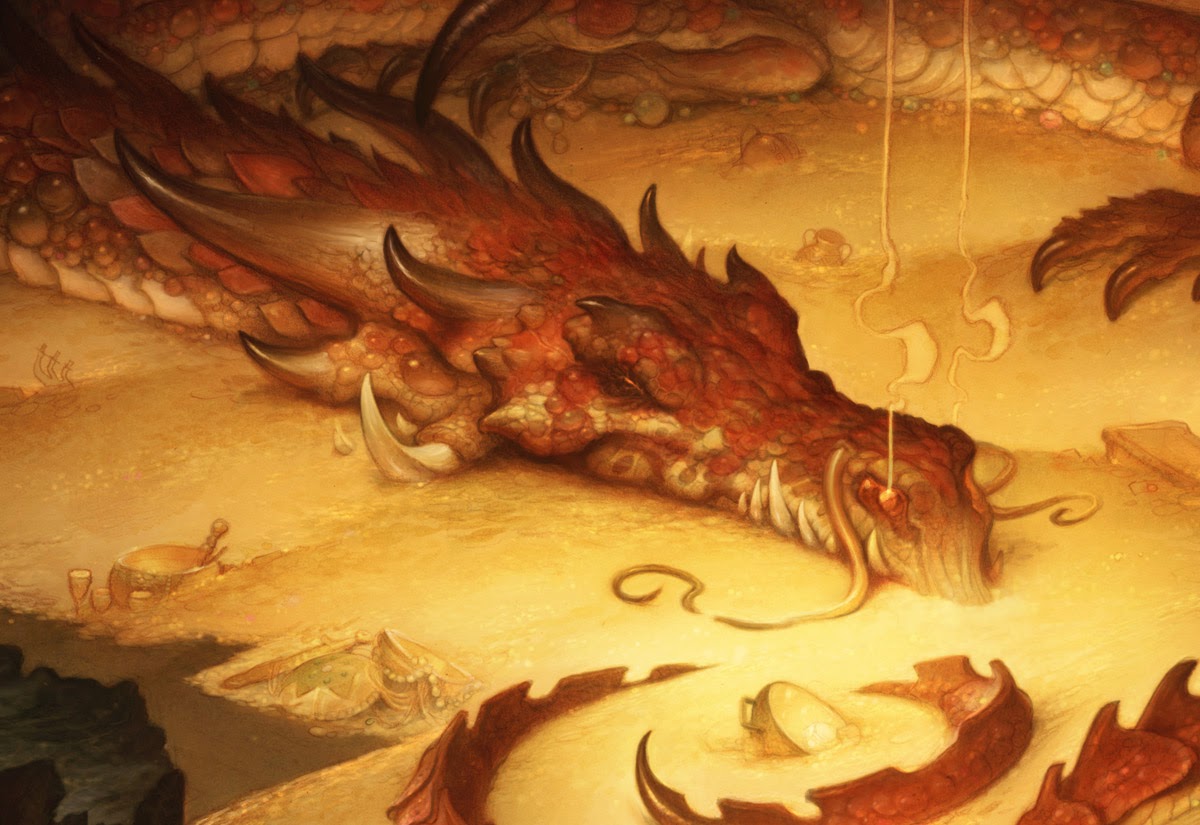
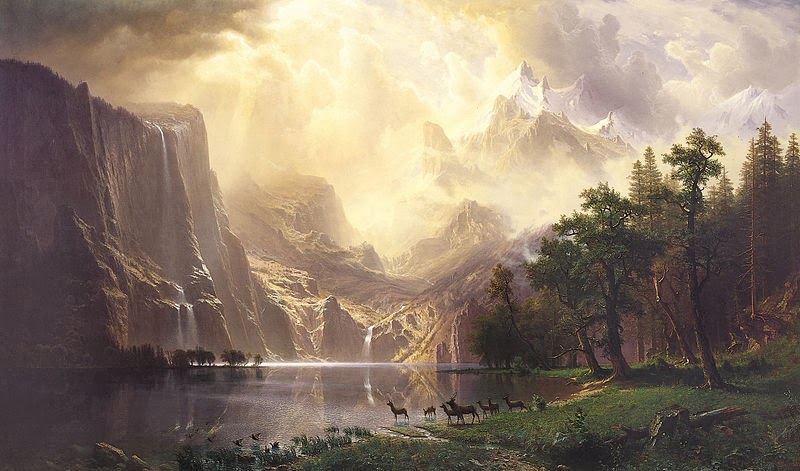
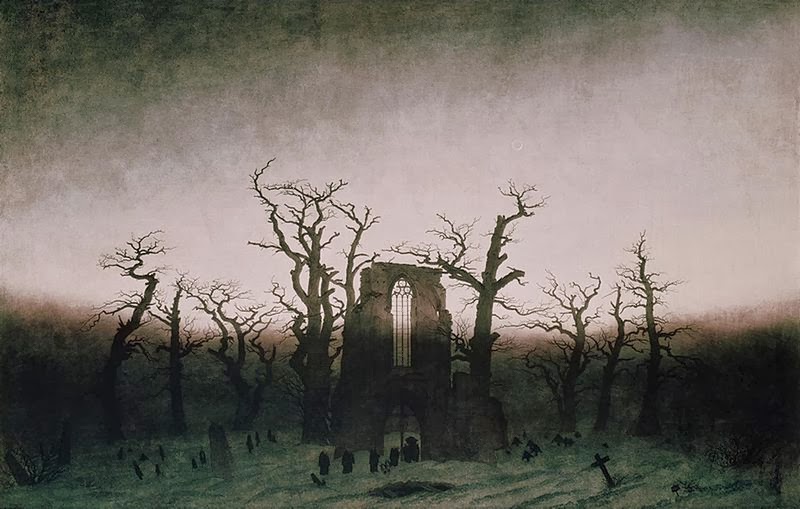



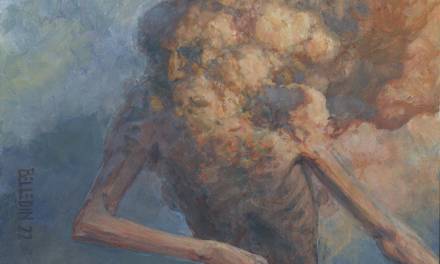
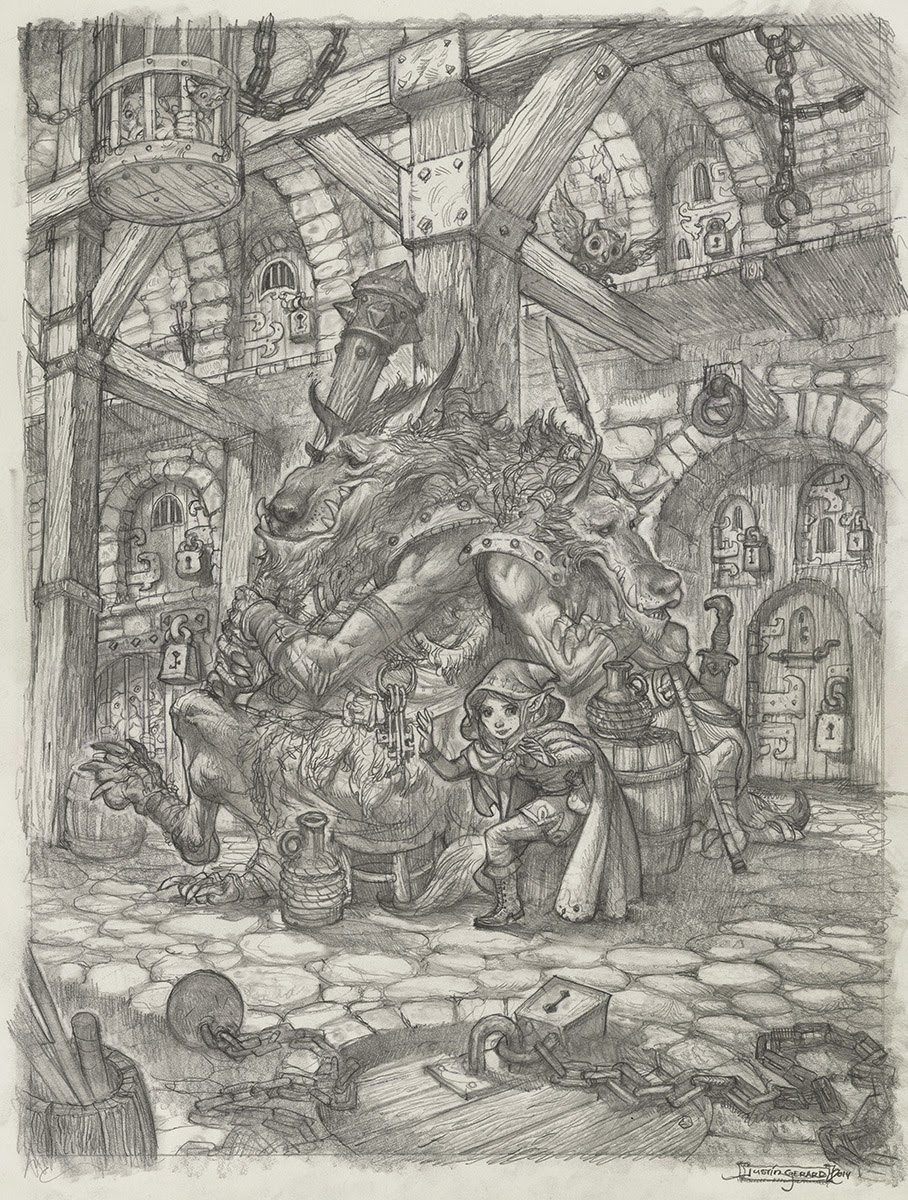
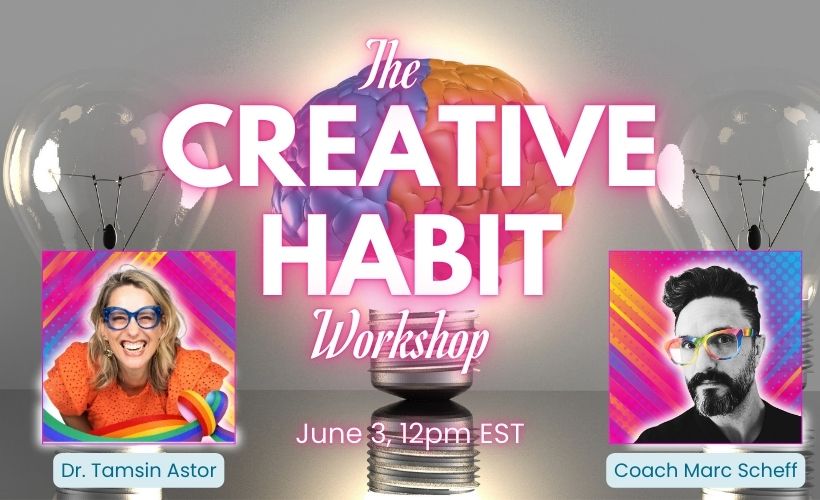
I didn't love the Hobbit movies, but I love the sentiment here. Paintings by Moran, Bierstadt, Friedrich, Hill etc. give this feeling of something a little bit more amazing than real life. But even better than getting that feeling from a painting or movie is when you do go out exploring our world and find yourself in a place that, despite all the pins on pinterest of unique vacation spots, you didn't realize was actually possible in real life. That is when your life feels like a fantasy for a little while.
James Gardner
Congrats on the new website!It looks great!
From your article I came with the conclusion that I have never heard a good Fantsy story. As much as I love trecking and going Mountain-nerd-raging (actually this must be the best thing to do irl save for exploring new planets-I'll get there soon) every single fantasy story I've read has left me with this huge nostalgic/despairing hole that can never be filled -a reminder of the fact that it's all it is- just a story. No trecking in the woods or swordwaving in the fields can fix it. We live in a world way more boring and gray than the stories we make up. That is the reason why we make stories up I guess. As much as these moveis/books inspire us to go out and find taht same beauty in the World around, they firm the truth. Any attempt to go out and pursue that dream will end with madness. No, seriously,sometimes I can easily see myself ending up like Don Quixote. There is no winning this and that is probally how most of us became artists – it is our way to excape, to not deal with the real world for a looong time. We live and breathe the fantastic and we like it that way. We build ourselves an imaginery castle, stuff it up with skulls and swords and dragon statues and such.And we bid farewell to the real world. I dont mind that tbh. The alternative to lose my mind and go berserk in a village, seems far worse 😛 But maybe there is a third way. How much of the fantastic is actually magical? What is magic? Someone said that any technology far enough in technical aspect from our own would seem like magic to us. Maybe the answer lies not in looking back in the past to the knights in shinny armor and teh castles and even further back- between the time when the oceans drank Atlantis and the rise of the sons of Aryas. Cause maybe it all lies ahead of us. How epic and fantastic would it be when our first astronauts reach a world far from here, full of life and with it's own myths and legends, a world with giant flying reptiles maybe. How long until we land on a giant hostile Super-Earth where the temperature and climate drove its population underground. The strong gravitation kept them short and muscular….and maybe, just maybe over the years they fell in love with precious stones and grew long beards? When mixing the fantasy and the sci-fi I find comfort and a sanctuary.
Why couldn't they just make the book into a movie? Sure the movies are epic and beautiful and the art is amazing. But that is true for just about every epic fantasy movie. I wanted to see the Hobbit. Not Clash of the Titans in Middle Earth. I understand that there are always changes when a story is adapted to film. But if it doesn't even feel like the same story why bother?
Watch these HESHE cartoons… if you dare.
https://www.youtube.com/watch?v=nJOSAwNzyi4
https://www.youtube.com/watch?v=JrKXH1CeXck
I think the point *was* to make the films different from the book. I explained on another post here about a year ago that I think what Jackson was striving for was to make The Hobbit mesh better with The Lord of the Rings. I can't remember the source, but I read that Tolkien himself attempted to do the same thing after The Lord of the Rings was published. It makes sense, too. If you look at The Hobbit and at The Lord of the Rings, the two are so different in tone and style as to appear they aren't even written by the same author or, at the very least, about the same world. The Hobbit is a story written for kids and it's evident when you read it. The Lord of the Rings is for an adult audience. Comparing the two, they really have very little in common beyond a few characters and the fact that they both take place in Middle-earth.
Now, if you were me, you read The Lord of the Rings first. Then, when you got around to reading The Hobbit, it became apparent to you that The Lord of the Rings must have been barely an idea at the time because, while the One Ring makes an appearance in it, it is just a simple, gimmicky little trinket that lets Bilbo vanish when he puts it on. There is no indication at all whatsoever that this thing he's found is anything beyond a simple magic ring. It's clear, at least to me, that at the time of its writing, Tolkien hadn't yet formulated the idea that it was actually the One Ring (or even that such a thing existed).
As a whole, The Hobbit (the book) is a very light-hearted adventure story and it was never meant to be anything more than that, which is exactly why it kind of clashes with The Lord of the Rings. In other words, the two barely seem related, and this was particularly jarring for me after reading LotR first. The Lord of the Rings was this sweeping epic and coming off of that The Hobbit was…a disappointment. I just found it so forgettable (I've read it twice and I can't for the life of me remember *MOST* of it, even now, which is saying something when, after reading LotR just once, I was able to recall every character and event in detail). I might have felt differently had I read The Hobbit first, though I can't say. Still, it's clear it and The Lord of the Rings don't have much in common and that they don't mesh well.
That said, I actually appreciated the film adaptation for trying to tie it in to The Lord of the Rings better. I still prefer The Lord of the Rings films, but I actually like The Hobbit films whereas I never really enjoyed the book.
I wanted to add that Justin says at the beginning of his article that The Hobbit movie disappointed him as a Tolkien story. I actually have that same sentiment for the book. To me, it read more like C.S. Lewis than Tolkien. I like C.S. Lewis and all (I loved Narnia when I was a kid), but he's no Tolkien.
Neither was Tolkien when he wrote The Hobbit, for that matter.
IMO.
Nice article, 👏